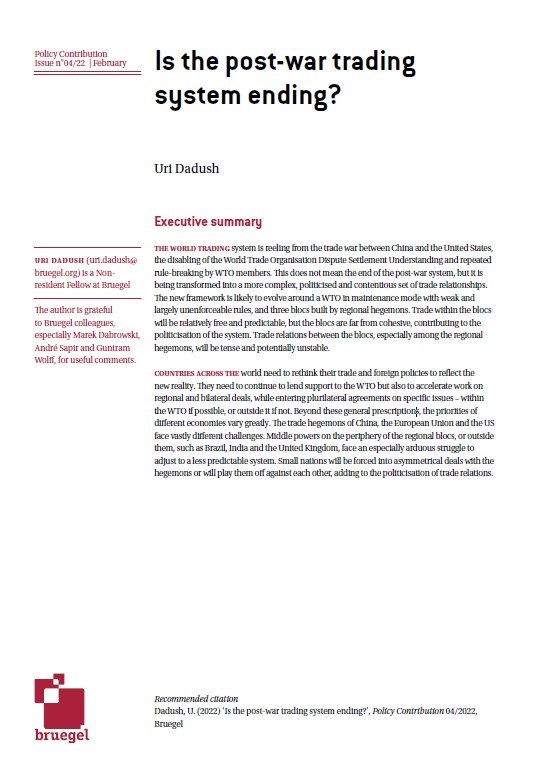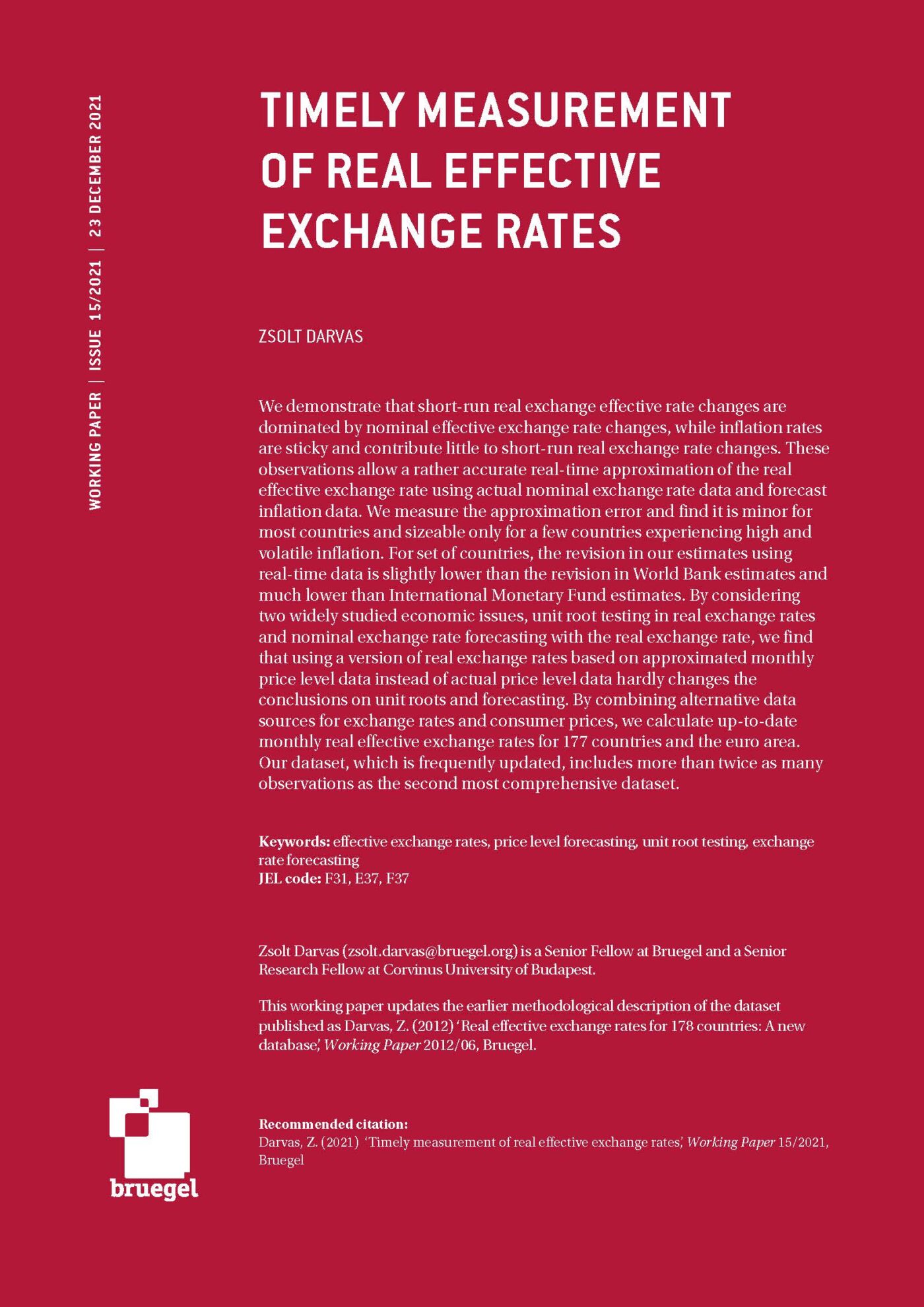Blog Post
India torpedoes the Bali Trade Facilitation deal
Citing concerns over food security, after a Cabinet meeting headed by the Prime Minister Narendra Modi last week, India reportedly decided against signing onto the trade facilitation protocol that was agreed upon at the WTO’s the Ninth Ministerial Conference at Bali.
Citing concerns over food security, after a Cabinet meeting headed by the Prime Minister Narendra Modi last week, India reportedly decided against signing onto the trade facilitation protocol that was agreed upon at the WTO’s the Ninth Ministerial Conference at Bali last December as a key deliverable under the Bali package2. While this is not yet an official position on the issue, concerns are rife that India may actually make good on the threat, if only as calculated brinkmanship to get its way at the WTO on its food security and public stockholding concerns.
Other than South Africa and a few members from the G33 group, India stands alone in this most recent negotiating spat. Several countries even issued statements saying that a failure to agree on the protocol would be a massive blow to the WTO’s credibility3. Member’s adopting/signing onto the TFA protocol on July 31 is a key first step before the deal can be ratified for implementation by July 31, 2015.
The Bali package is an early harvest of the 13 year old multilateral trade negotiations under the Doha Development Round (DDR), which has been faltering since its inception given the wide divergence in expectations of the key negotiating partners from the trade agreement. The Bali package included 10 agreements. They comprise a binding agreement on trade facilitation4 and four descriptive items in agriculture such as general services, public stockholding for food security purposes, understanding the tariff rate quota administration provisions of agriculture products, and export competition. In the development dossier, the Bali package offered non-binding best endeavour outcomes on preferential rules of origin for least developed countries, organisation for the waiver concerning preferential treatment to services, duty-free and quota-free market access, and a monitoring mechanism on special and differential treatment.
As this author had noted in an earlier post, “the net immediate gains from the Bali agreement therefore boils down to the symbolism of resurgent multilateralism and the WTO”, given that other than in trade facilitation and food security, “in several other areas the ministerial declaration only consists of statements of intent and conditional implementation promises”. However, while commentators have noted the various asymmetries marking WTO’s Bali package and the hypocritical stance of the developed countries at the WTO, and in particular the USA in the agriculture negotiations, the adoption of the mini-agreement in December 2013 did indicate a support for multilateral trade negotiations at a time when the world’s leading economies have decidedly turned pro-regional and increasingly nationalistic in their approach to trade liberalisation negotiations.
Is there any method in India’s madness?
As regards its design, under the paragraph 47 of the Doha Declaration of 20015, the early harvest Bali package is part of DDR’s single undertaking, although it can be implemented in a manner decided during the negotiations. And the Bali package envisaged agenda-wise sequential timelines for delivery6 of the different parts of the package, without hinting that progress in the different protocols need to be simultaneous or at similar speed, with the TFA adoption being the first deliverable scheduled for July 31, 2014 in order to facilitate implementation within the next 12 months.
The next key deliverable on the timeline was finalisation of the post-Bali DDA work programme before December 2014, while the permanent solution on public stockholding for food security purposes under the Agriculture Committee negotiations were slated for conclusion with a 2017 deadline, the latter’s extended timeline also reflecting the fact that food security issues still have to be negotiated, most likely as a part of the overall agriculture agreement. The only assurance on the subject was that the Peace Clause7 expiry was tied to the timeline of a “permanent solution” on the dispute over the legitimate uses of food reserves for food security, a definite negotiation gain that India scored at Bali.
Thus it can be argued that the above differential implementation timelines have determined prioritisation of certain sections of the Bali package in the Geneva based negotiations in 2014, although it has drawn criticism from the LDC group that expressed unhappiness stating that “everything else is being held hostage pending the conclusion of discussions on the TFA”. Critics have however argued that the concept of the single undertaking was undermined because trade facilitation had a quick implementation deadline while the other two parts of the Bali package, food security and policies to support least developed countries, had only vague commitments and distant deadlines. The fear is that by advancing agreement on only some parts of that broader development agenda, and by fast-tracking an issue of most interest to developed countries – trade facilitation8 – the logic of the single undertaking would dissolve and they would see no movement on the issues that matter to them most, agriculture and food security.
As discussed above, in light of the fact that India is likely to push for an extension of the July 31 first implementation deadline or suggest that the trade facilitation agreement be made “provisional” subject to progress on other Bali issues, countries now fear a derailment of the tentative gains in the multilateral track negotiations at the WTO. Concerned WTO members, in particular industrialised countries and other major developing country trading nations, have warned that failing to seal the trade facilitation protocol would unravel the whole package of trade agreements agreed upon in Bali, effectively destroying the chance of further global trade reform, something that India has long demanded. New Delhi’s stance that progress in food security negotiations would determine its adoption of the TFA protocol is thus treading on dangerous waters.
But it may be interesting to understand whether India’s threat to withhold its support for trade facilitation can effectively scuttle the Bali deal in the WTO’s consensus-based process. In fact there is a legitimate view emerging that perhaps too much is being made out of the TFA protocol outcome. All the protocol does is open the Marrakesh Agreement establishing the WTO to allow another agreement, in this case the TFA, to be added to the existing WTO Agreements. The protocol is therefore a mere legal instrument which allows this change to happen. Governments must still ratify the TFA following WTO’s procedural requirements, and only when two-thirds of the Members do so does it enter into force, but only for those countries which ratify. In fact it is theoretically possible that India could actually never ratify and thus never have to comply with the TFA requirements.
Unfortunately that move will be counterproductive for Indian businesses and their external competitiveness, even when Indian exports are largely in a narrow band of product categories that are either commodities or niche (traditional and manufactured) products and services, and are unrelated to any major global production networks’ trade chain. And this is the reason why Indian industry has been vocal in its disapproval over the current supposedly pro-business government’s willingness to put in jeopardy an agreement that would enhance national export competitiveness merely to “ensure that Indian minimum support prices (MSPs) for food products continue to be high”. Others have argued that if India’s refusal to back the protocol derails the Bali deal, it could lose the four-year reprieve and face sanctions on its current foodgrain stockpile9 which critics say could be dumped into global markets, although in practice India does not have a history of dumping grain that it acquires for purposes of food security for the economically vulnerable, and its exports are usually at market prices.
Strategy or Lack of Vision?
Multilateral negotiations at the WTO are an extremely complicated exercise, requiring the fine balancing of a multitude of sectors and interests. Countries have to play off their internal lobbies’ demand against the gains from trade, which are generally spread out over all their citizens; and unanimity is required, making progress subject to vetoes from countries with no stake in the future. It is doubly tragic, therefore, if such hard-won outcomes get torpedoed by one of the countries with most to gain from a strong multilateral trading system; India’s current economic development and trade patterns indicate that unilateralism and multilateralism are its welfare-optimising options, and ought to be preferred over the much-hyped gains from regionalism.
The new Prime Minister has often emphasised that all his policy actions will have only one single criterion of whether or not they serve India’s national interests. Mr. Modi has vowed to spur economic growth through sweeping changes to policies and seems committed to boosting India’s competitiveness by improving its business climate. In that light, the present government’s fixation with focusing primarily on alleviating domestic infrastructure and policy constraints for growth is laudable if India hopes to catch up with its neighbouring Asian powerhouse; China’s GNI per capita (PPP, in current international $) in 2013 stood at $11,850 – more than double of India’s $5,35010. And his government’s apathy to global governance issues and proactive multilateral engagement is then a corollary if one believes that good bureaucratic and diplomatic resources are limited and become ineffective when spread out thin.
That said, the strategists in the present Indian government would do well to consider in totality the related geo-economic developments before determining the country’s future stance towards regional/ global engagement. Unfortunately, not unlike the other economic powerhouses, the new Indian government’s current stance on the TFA (and multilateral trade negotiations in general) seems to reinforce the concern that a grand vision on future trade policy and a longer-term governance strategy is sorely lacking; the current thinking seems to be largely dominated by short-termism and protectionist-nationalist mindsets. As the panellists argued in a recent Bruegel workshop on the subject, this lack of strategic thinking may have grave consequences for the future of the global trade governance system, which if evolves in favour of fractured regional trade governance regimes will harm most the weaker developing countries, including emerging markets like India with limited integration into the global production and supply networks, and a large population of poor low-skilled workforce.
India has a history of resorting to aggressive brinkmanship to get its way at the GATT/WTO, but as an oft-used strategy it may have lost its edge already. It is clear that there is very limited support for its latest stance on the TFA protocol. On the other hand, doing nothing is an acceptable strategy only when it is backed by a long-term strategic thinking and foresight. Inertia and political opportunism are also often confused with continuity in policy making. Thus, one only hopes that there is more to India’s recalcitrant stance in the WTO this time around, beyond its use as a mere negotiating tactic. For it is becoming painfully apparent that in the current geo-political and economic context, doing nothing/ maintaining status quo in the multilateral forums is likely to extract a very stiff price in the future from everyone, and in particular a country like India.
***
[1] Marie Curie Fellow at Bruegel (Project MULTITRADE, No. 328351). This blog reflects only the author’s views and the European Union is not liable for any use that may be made of the information contained therein.
[2] However, media reports on the following day seemed to suggest that a change of stance is possible, and India might finally relent on the trade facilitation agreement (TFA), provided it gets an “assurance” from the WTO’s member-countries, especially the developed nations, that issues concerning food security would be addressed along with TFA.
[3] The European Union has warned: "Without adoption of the Trade Facilitation Protocol by July 31 a great opportunity to mobilise trade as an instrument for growth and development would be lost, and the credibility of the WTO, which has during the financial crisis proven its value as a firewall against protectionism, would be further damaged." Japan also said it strongly urged "those members who take a contradictory stance" to try to achieve the common objective. A statement made by Thailand, Malaysia, Vietnam, Pakistan and other developing countries said: “A decision to step away (from TFA) will be in no one’s interest. It will undermine the ability of WTO to deliver for the future.”
[4] The TFA is often described as a "good governance agreement" for customs procedures that industrialised countries want the developing and the poorest countries to implement on a binding basis, failing which the latter can be hauled up at the WTO’s dispute settlement body.
[5] Paragraph 47 states: With the exception of the improvements and clarifications of the Dispute Settlement Understanding, the conduct, conclusion and entry into force of the outcome of the negotiations shall be treated as parts of a single undertaking. However, agreements reached at an early stage may be implemented on a provisional or a definitive basis. Early agreements shall be taken into account in assessing the overall balance of the negotiations.
[6] And several countries have already said that renegotiation of existing timelines is not an option.
[7] We acknowledge here the inherent injustice of the Bali Peace Clause being offered to India and the G‐33 countries for just four years, and also that it excludes the subsidies measures and expires even if there has been no resolution of the other outstanding Doha issues. This is in sharp contrast to the nine-year long Peace Clause that the US and the EU negotiated in 1994 to protect themselves from WTO lawsuits over their hugely distorting subsidies and countervailing measures.
[8] This unfortunately has indeed been recommended by some American trade policy experts.
[9] India’s vast grain stockpiling and a US$22 billion annual food subsidy programme implemented by the previous government are (price) subsidies in breach of the WTO’s current specified limits.
[10] The corresponding figures in GDP per capita (current US$ ) are China: 6,807, India: 1,499, indicating a more than 4-fold gap.
Republishing and referencing
Bruegel considers itself a public good and takes no institutional standpoint. Anyone is free to republish and/or quote this post without prior consent. Please provide a full reference, clearly stating Bruegel and the relevant author as the source, and include a prominent hyperlink to the original post.










